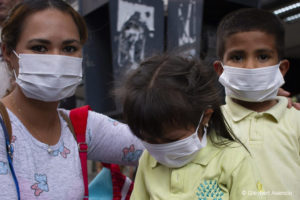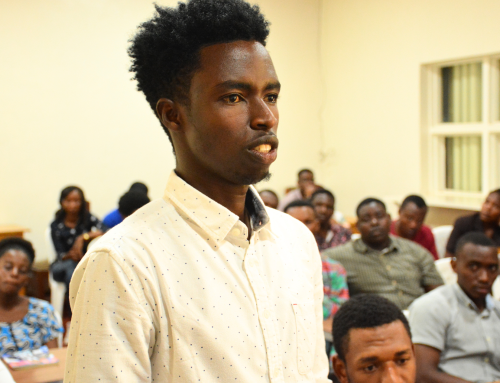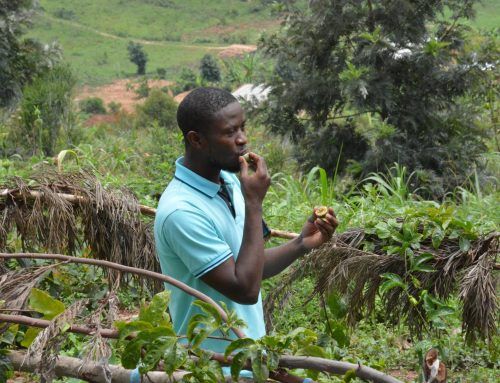
I was thinking these days that we are fortunate to be able to contribute to the mission of the Society from what we call the social apostolate, our beloved social sector. Serving the most vulnerable people is a responsibility, but also a privilege. We have been entrusted with attending to the needs of the most vulnerable people. It is a gift, but also a task. From this condition of “gifted” and “busy”, I share some reflections.
These days we feel the pain of many people and groups. Especially those who have fallen ill and are in hospital; or of the elderly who are going through this time of confinement alone; or of those who have no family to lean on and are afraid; or of those who have to say goodbye to a deceased relative without being able to see him or celebrate the mourning with other loved ones.
These days we also continue to accompany other forms of suffering, more familiar, but with new nuances: that of the minors with whom you live; that of the migrants exposed to living on the street, or with great precariousness, or simply without income; that of the prisoners in the prisons, who live locked up and in fear and with hardly any outside contact; and that of the poor communities in other countries who feel that a wave is approaching them that will soon shake them.
But it is not only today’s pain that concerns us, but also tomorrow’s, which will soon come. We will be facing a severe economic crisis that will impoverish many and, if it is not resolved in a radically different way to that of the last decade, will leave us with serious consequences of inequality. In fact, we do not know what world will be left after this crisis, but it will be different from the one we knew. It will never be the same again, which is worrying.
A time for compassion and solidarity
First of all, this is a time for compassion and solidarity, that is, to suffer with others and to feel united with those who suffer most. We know very well what active solidarity means, that which strives to make available to others all the resources we have – human, spiritual and material. This is what we usually do, giving ourselves entirely personally and institutionally. This form of active solidarity is usually internally fulfilling, because although we may be exhausted, we have the comfort of knowing that we have given ourselves completely, which is comforting.
Passive solidarity is more difficult for us, and we must be content to be at the side of those who suffer without being able to resort to a word or a gesture that soothes, because we simply do not have them. Perhaps this is the basic form of human compassion, because we human beings are essentially fragile and sometimes we cannot do anything, simply nothing. That is why the first form of comfort consists of presence, the most naked presence, even if it is incapable of giving anything else.
But there is a third form of solidarity, that of solidarity that has failed, that is to say, solidarity in failure, which is much harder, but certainly deeper, and which I hope we will not have to try, but which we must be able to face up to, if necessary. It is the solidarity of those who share the failure of those who lose or live worse, by experiencing in turn the failure of their institutional or personal projects. It is a form of intensely Christian solidarity, more understandable at the end of Lent, when we prepare to accompany the passion of Jesus during Holy Week. It is the solidarity of those who finally share destiny, as Jesus did, by becoming poor with the poorest. Committed to loving and serving the poorest, it would be difficult for us not to experience some of this.
Time for interior renovation
Secondly, this is also a time for inner renewal. We cannot let all these days of confinement pass without giving ourselves the opportunity to pray and reflect more and to grow humanly by going deeper. This time has a sabbatical dimension that we cannot neglect.
In reality, it is an opportunity to rethink and change our course as humanity. The path that human beings have taken at the beginning of the 21st century leads us to a precipice. We all know this, but we lack the collective will to change this direction. We are distracted, not wanting to hear the thud coming from the gorge. We cannot continue to punish life on the planet as we do and we cannot continue to rise above the pain of those who are excluded – or indifferent to it – in order to maintain our way of life. The coronavirus crisis will be longer or shorter, but it will be temporary. However, the current socio-environmental crisis is long term, it is the challenge of our generation. And to overcome it we need a new human being, a new culture, a way of extracting, producing, consuming and discarding different, political institutions that will transform the current structures of solidarity, which are absolutely insufficient at the national level and how much more so at the international level. And possibly, we need another spirituality and another way of living religion.
That’s the challenge of our time. Today, with the coronavirus, we experience an unexpected scenario, which has caught us off guard. If we continue as we have done up to now, similar passages await humanity in the future, who knows of what magnitude.
In this coronavirus crisis we’re going to have to make a lot of substantial decisions. On a personal level, on an institutional level, on a political level and on a market level. This gives us the opportunity to change many realities. Therefore, this crisis can be an opportunity to rebuild our humanity, to spread the virtue of solidarity, to create structures of coexistence that protect everyone and to get rid of our unbridled and carefree consumerism. From it can be born a global citizenship, with the awareness that we share global goods that we must manage for the good of all. Human beings with the same destiny as a species. So time to rethink. From the ashes of the falls, the most generous creations can emerge. A silent and confined Saturday of inner renewal leads to a creative and luminous Sunday.
Time for Hope
So, thirdly, this is a time for hope. Hope because we are Christians and we have our faith in a humiliated, downcast and failed man, who, in the face of all that is reasonable, we believe is still alive among us. We believe that his project of a humanity reconciled and in harmony with nature, a project for which he gave up everything, has a future: because God has a future and with him the discarded and the threatened life, because he is a God who has sealed an unbreakable covenant with the last ones.
Hope also because we know about the capacities of human beings, their creativity, their generosity and their goodness. We see them on so many occasions that we cannot doubt them. Human beings are capable of the most sublime things. We are exceptional witnesses of this in the social apostolate.
And hope because we have intense experience that God accompanies us in this endeavor for a more just, sustainable world, where the discarded have a place to live. God, the one who never leaves us, is the God of the poorest, his preferred ones. He does not abandon them, nor does he abandon us. I conclude: as I was saying, time for compassion and solidarity, for inner renewal and for hope. It is up to us to go through it together, accompanying and supporting each other.
Patxi Alvarez
Article was first published here; https://jesuit.network/social-apostolate-and-crisis-covid19/










